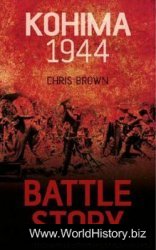Peace was restored in 1763 by the Treaty of Paris. Its terms were moderate considering the extent of the British triumph. France abandoned all claim to North America except for two small islands near Newfoundland; Great Britain took over Canada and the eastern half of the Mississippi Valley. Spain got back both the Philippine Islands and Cuba, but in exchange ceded East and West Florida to Great Britain. In a separate treaty, Spain also got New Orleans and the huge area of North America west of the Mississippi River.
“Half the continent,” the historian Francis Parkman wrote, “had changed hands at the scratch of a pen.” From the point of view of the English colonists in America, the victory was overwhelming. All threat to their frontiers seemed to have been swept away. Surely, they believed in the first happy moments of victory, their peaceful and prosperous expansion was ensured for countless generations.
No honest American could deny that the victory had been won chiefly by British troops and with British gold. Colonial militiamen fought well in defense of their homes or when some highly prized objective seemed ripe for the plucking; they lacked discipline and determination when required to fight far from home and under commanders they did not know. As one American official admitted, it was difficult to get New Englanders to enlist “unless assurances can be given that they shall not march to the southward of certain limits.”
Colonials were delighted that scarlet-clad British regulars had borne the brunt of the fighting and happier still that the Crown had shouldered most of the financial burden of the long struggle. The local assemblies contributed to the cost, but except for Massachusetts and Virginia their outlays were trivial

European Claims in North America after British Victory, 1763 The British victory In the French and Indian War caused nearly all of New France to be transferred to Great Britain. The Mississippi and Ohio Valleys, the Great Lakes region, and most of what is now eastern Canada were now under British rule. Only Spain now vied with Britain for control of what is now the continental United States. Russia claimed the coastline of what is now Alaska.
Compared with the ?82 million poured into the worldwide conflict by the British.
The great victory produced a burst of praise for king and mother country throughout America. Parades, cannonading, fireworks, banquets, the pealing of church bells were the order of the day in every colonial town. “Nothing,” said Thomas Pownall, wartime governor of Massachusetts and a student of colonial administration, “can eradicate from [the colonists’] hearts their natural, almost mechanical affection to Great Britain.” A young South Carolinian who had been educated in England claimed that the colonists were “more wrapped up in a king” than any people he had ever heard of.




 World History
World History


![The General Who Never Lost a Battle [History of the Second World War 29]](https://www.worldhistory.biz/uploads/posts/2015-05/1432581983_1425486253_part-29.jpeg)






